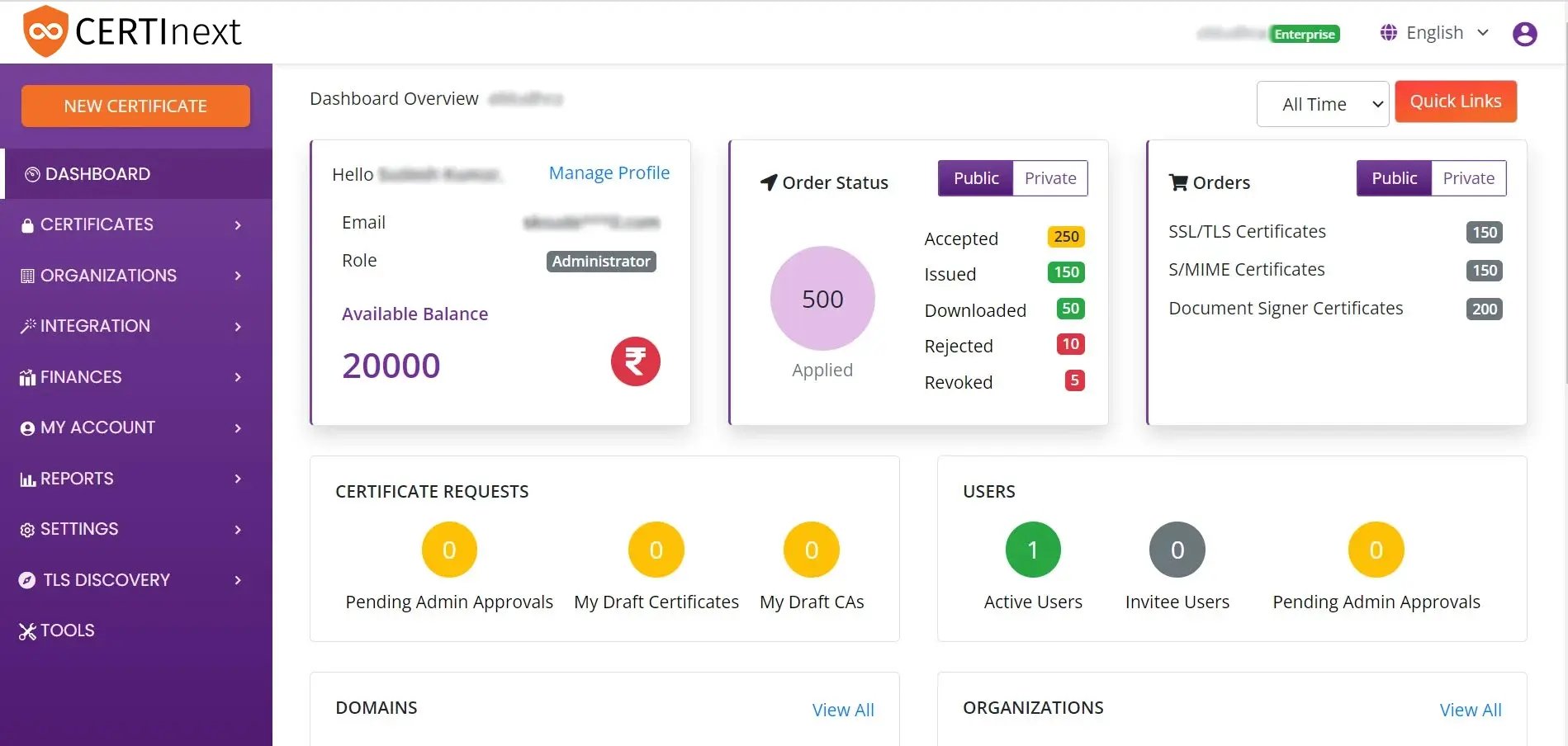
Let Downtime Concerns be a Thing of the Past.
One Portal to Manage All your Certificates
emSign Hub can help you save up to 70% of the time you spend on managing your Organization's Public Trust requirements and can be up to 30% more pocket friendly, thanks to our robust pricing policies and simple UI.
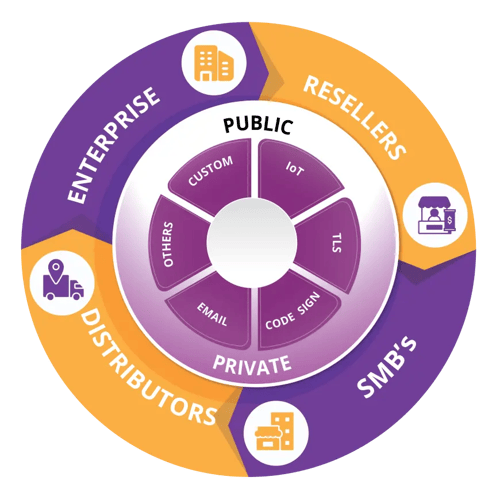
Discovery Capabilities, Out of the Box
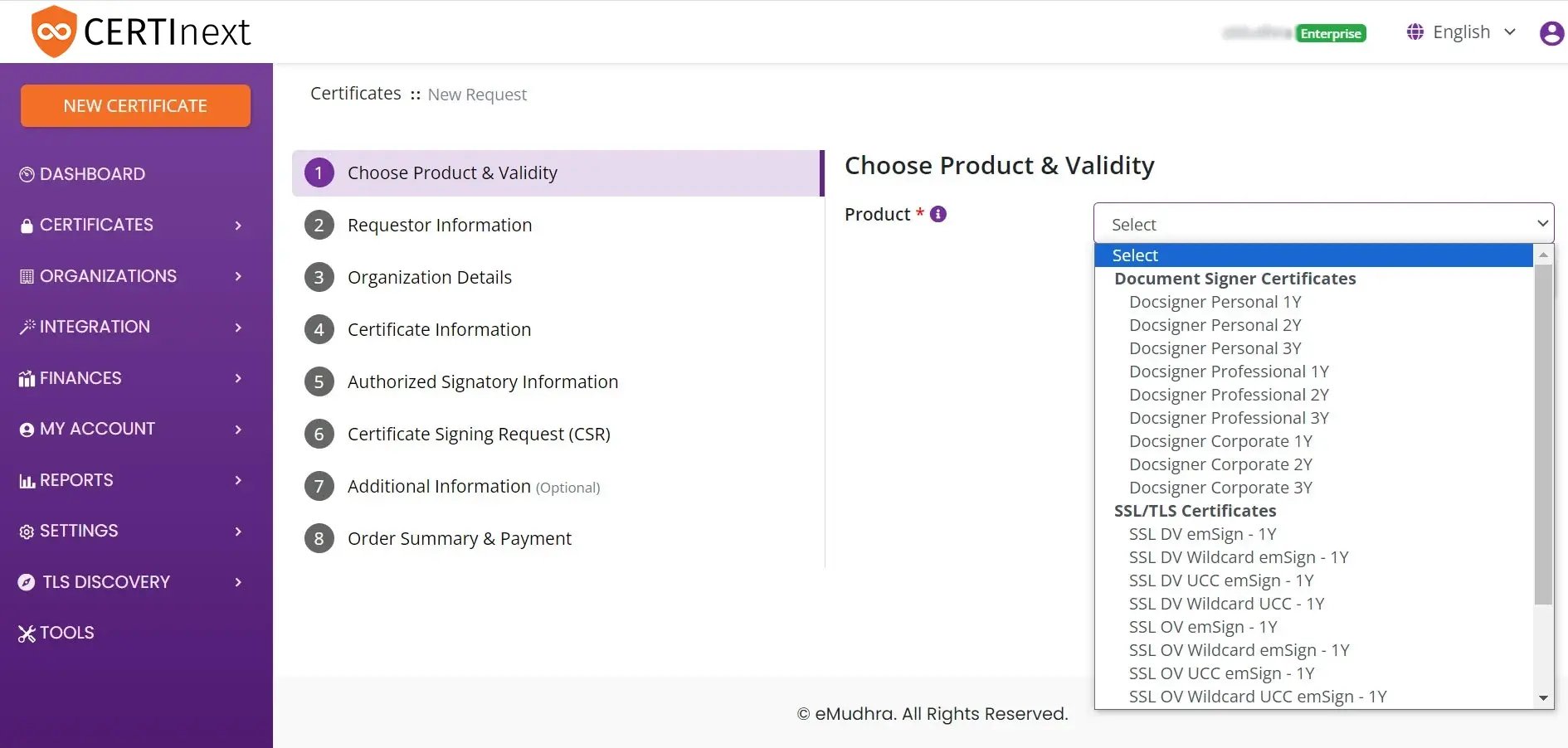
Scan any network and identify Vulnerabilities
emSign Hub comes with discovery capabilities out of the box to help you identify your vulnerabilities and ensure that they are addressed quickly and easily. emSign Hub comes with a single free agent that can allow you to discover certificates in your network. Additional agents for complex environments can be procured or bundled with your emSign Hub package.
Build to make Life easier
- Centralized management of all digital certificates
- ACME and REST APIs for application integration
- Single Sign-on using Microsoft 365
- Self-sign-up and fully self-service provisions
- Wide range of digital certificate types (SSL/TLS, SMIME, Private, etc)
- SSL/TLS Discovery across the networks
- Certificate renewal tracker
- Groups / Org Units to manage sub-departments, projects, etc
- Custom Fields at order level for granular tracking
- Multi-user roles with permissions
- All digital certificate types in single platform
- Self-sign-up with curated prices
- Complete API access for reseller's website
- Multiple currencies
- Provision to create and manage Sub Resellers
- Provision for Enterprise Sub Accounts with full management options
- Configure billing / credits for Sub-Accounts
- Unified portal of all reporting and analytics
- REST / ACME API based certificate issuances
- Customize products and prices to Sub-Accounts
Manage All Certificates Under One Enterprise Account
SSL/TLS Certificates
These are used for securing network connections, typically for web servers (HTTPS), but they can also secure other types of network connections. They confirm the identity of the server to the client and enable the client and server to establish an encrypted connection
Email or S/MIME Certificates
These are used for signing and encrypting email communication. They allow the recipient of the email to confirm the sender's identity and ensure that the email has not been tampered with during transmission
Document Signer Certificates
These certificates are used for digitally signing documents to verify the sender's identity and ensure the document's integrity. The certificate confirms that the document originated from the claimed sender and has not been tampered with since being signed
IoT Device Certificates
These are used to authenticate Internet of Things (IoT) devices, ensuring secure data transmission. IoT certificates confirm the device's identity, encrypt data in transit, and help maintain data integrity. They also enable device-level authorization, controlling the access of a device to specific resources within the network
Code Signing Certificates
These are used for signing software code. The purpose is to authenticate the source of the code and confirm that it has not been tampered with since being signed
Authentication Certificates
These certificates are utilized in MFA processes to enhance security for users, machines, and devices. They add an additional layer of security by requiring more than one form of verification, thereby ensuring that the entity seeking access is indeed authorized
Globally Trusted Digital Services

SSL Certificates Issued Under emSign Rooted Trusted Globally
SSL certificates issued under the emSign root are universally accepted and trusted by all major internet browsers around the world.
Read Report
What is Managed PKI? Managed PKI Services and Solutions
In today's digital age, data security is of paramount importance, and it is crucial to ensure that the information we transmit and store is safe.
Read Blog
Find out the Difference between SSL Certificates
Here is a Comparison Matrix on DV, OV and EV certificates which explains in detail the features of each certificate type, vetting mechanism, application area ad more.
Download DatasheetRelated Resources
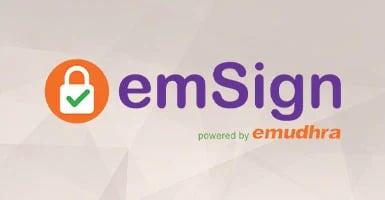
Learn more about emSign
Visit Website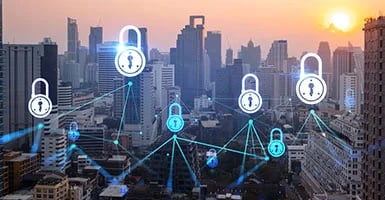
Trust Service Provider: Definition, Roles and Use Case, Explained!
Read Blog
Quick facts about eMudhra SSL and all the key benefits
Download DatasheetemSign Hub + CertiNext, a Perfect Combo
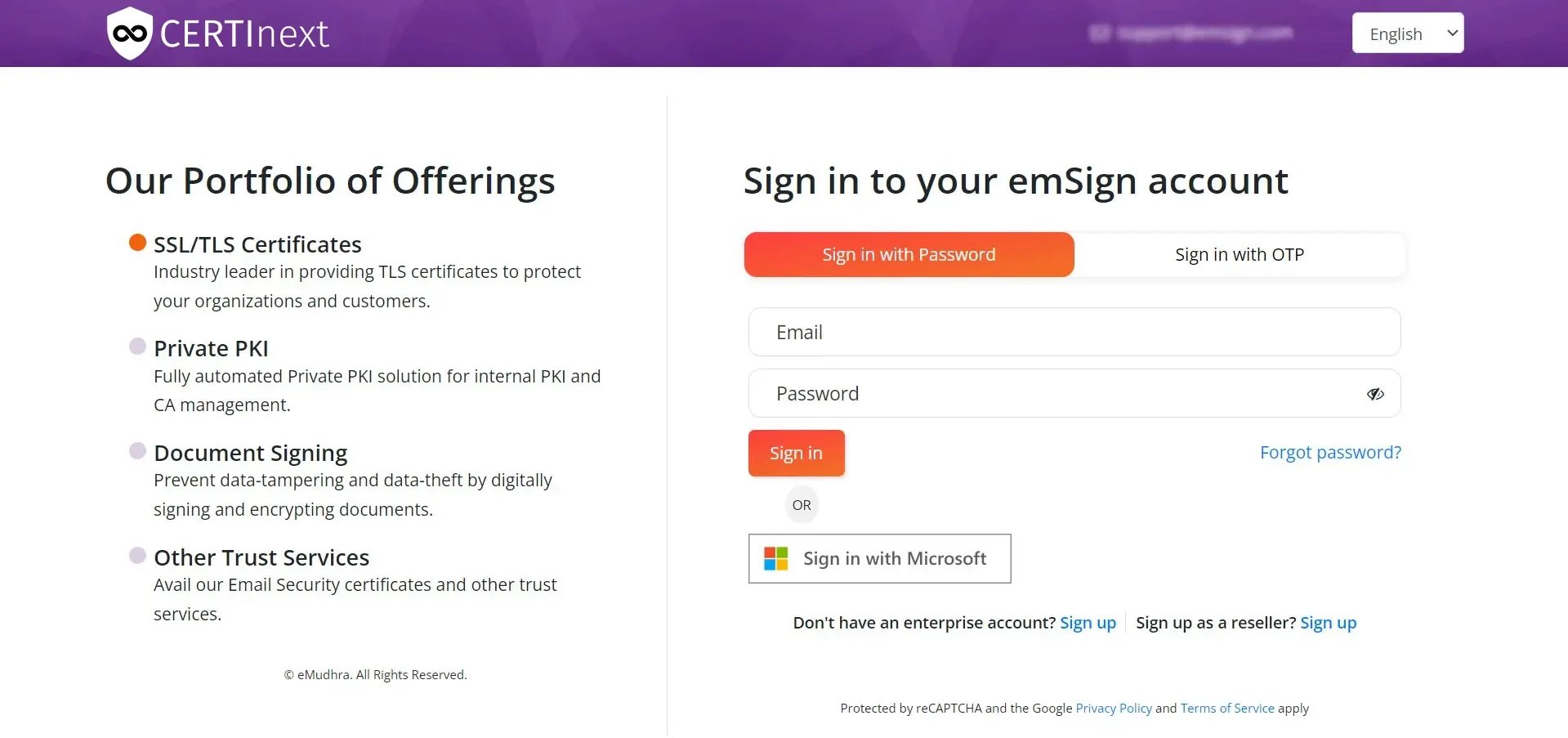
Certificates are great in protecting your Environment and encrypting traffic and data. But they only remain great if you make sure you renew them on time. Moreover, there's a chance that your organization has got a bunch of Certs lying around that may be dated, with inadequate encryption strength, simply waiting as bait to the next cyberthreat that hasn't taken place yet.
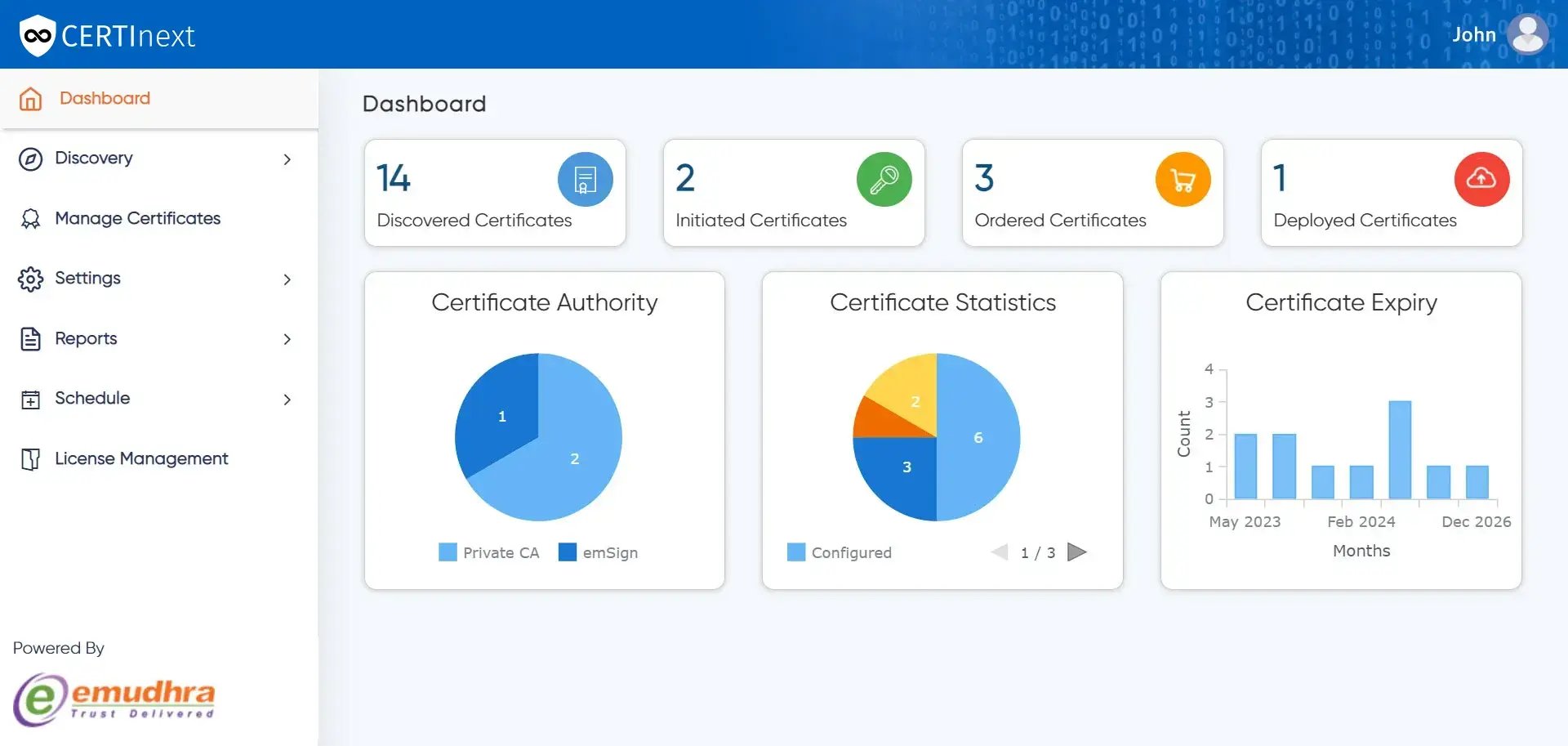
CertiNext, eMudhra's CLM is pre-integrated with emSign Hub to help you identify vulnerable Certs and Certs that are about to expire. But with CertiNext, identification is just the start. CertiNExt allows you to configure workflows and policies that can automate Certificate renewal to ensure zero downtime. With optional Key Management capabilities, you get a one-stop solution not just to uptime, but also encryption management across your organization.
Let's Connect.
Frequently Asked Questions
PKI as a Service provides cloud-based management of digital certificates and cryptographic keys, enabling secure authentication and encryption without the need for on-premises infrastructure. It simplifies deployment, scalability, and compliance for organizations.
A PKI provider is a company or service that offers Public Key Infrastructure solutions, including the issuance, management, and validation of digital certificates and cryptographic keys. They handle the technical and administrative aspects of PKI, ensuring secure communications and authentication for organizations.
Enterprise PKI helps secure digital transactions, confirm the identities of devices and users, and maintain the integrity and confidentiality of information in your organization.
The total cost of ownership varies depending on the number of certificates needed, administrative requirements, and the payment model (e.g., pay-as-you-go, prepaid account, or unlimited issuance license).
Bulk purchasing provides significant volume discounts, reducing the cost per certificate compared to purchasing individual certificates.
By streamlining processes like issuance, revocation, and renewal of certificates, you can minimize the time spent on certificate administration.
These integrations help automate the distribution of certificates, reducing manual efforts and making the provisioning process more efficient.
Centralized control allows you to manage all certificates and user activities from one place. This includes actions like revoking, renewing, reissuing, and canceling certificates.
Through centralized control, you can set permissions determining who can issue certificates, the types of certificates that can be issued, and the domains or entities they can be issued to.
Yes, a single account can be used to manage the certificates of multiple departments or business entities.
IoT device certificates authenticate the device's identity, encrypt data in transit, maintain data integrity, and provide device-level authorization, ensuring secure IoT operations.
MFA adds an extra layer of security by requiring more than one form of verification. This ensures that the entity seeking access, whether it's a user, machine, or device, is indeed authorized.
The six components of Public Key Infrastructure (PKI) are: Certificate Authority (CA), Registration Authority (RA), Certificate Database, Certificate Store, Certificate Revocation List (CRL), Public and Private Keys.